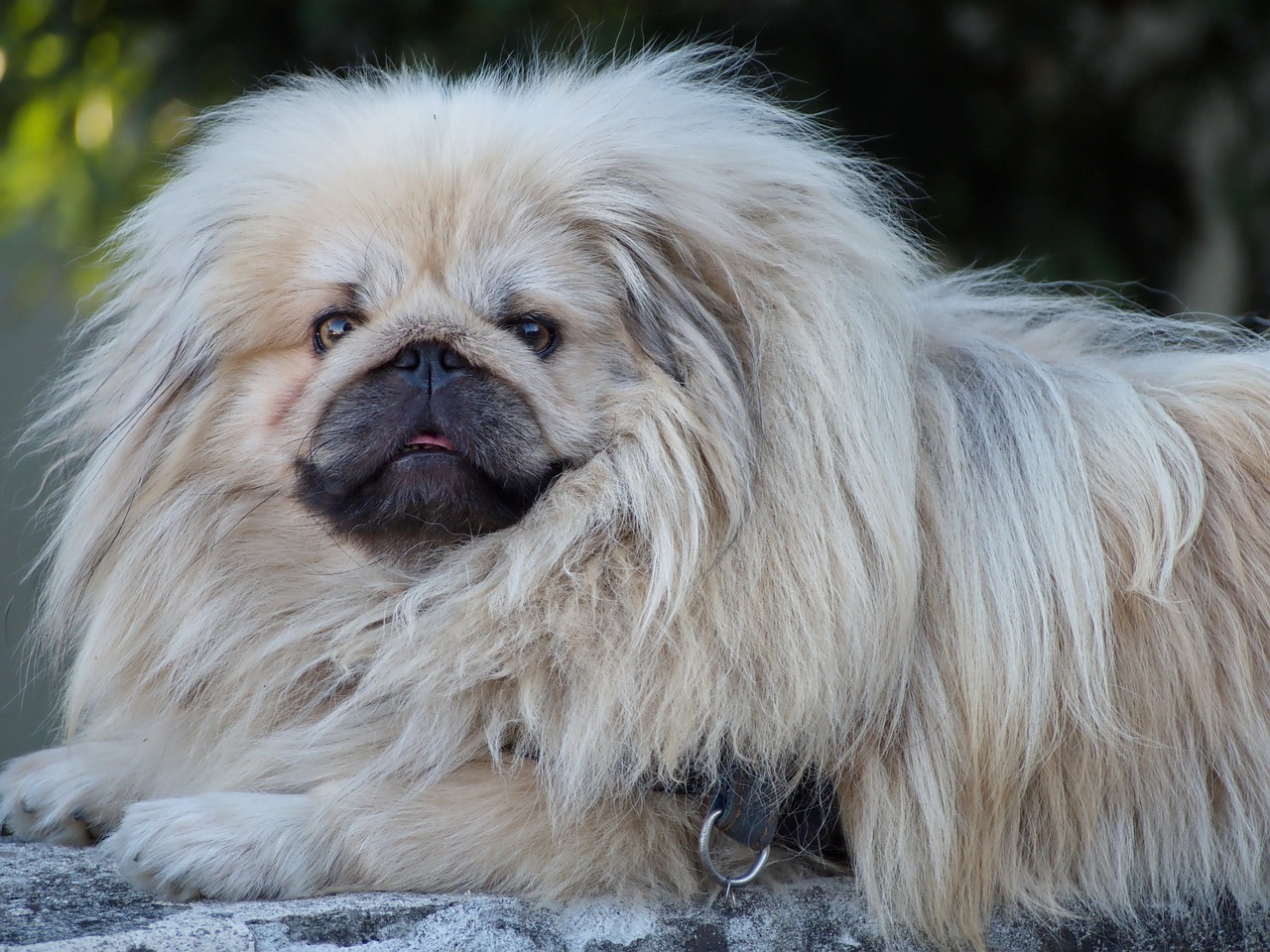Pekingese, often described as a dog with a lion’s heart wrapped in a small package, have been revered and cherished by Chinese royalty for over a millennium. This breed, characterized by its distinctive flat face, luxurious mane, and confident demeanor, has captured the hearts of many dog enthusiasts worldwide. But with its noble lineage and dignified appearance comes a question that many potential Pekingese owners ask: Are Pekingese aggressive? Let’s delve into the world of Pekingese and uncover the truth behind their temperament.
Pekingese: Understanding Their Natural Temperament
Firstly, it’s crucial to understand the inherent nature of the Pekingese. Historically, Pekingese were bred to be companions to Chinese royalty. They were not working dogs but were instead meant to sit alongside emperors and empresses. This regal history often translates into a dog that is independent, confident, and sometimes downright aloof.
That being said, the Pekingese is not naturally aggressive. However, they are known to be quite assertive, and if not given proper boundaries, can exhibit behaviors that some might interpret as aggressive. This perceived aggression often manifests as resource guarding or a certain territoriality.
The Role of Training in Pekingese Behavior
Training plays an instrumental role in the behavior of all dog breeds, and the Pekingese is no exception. Due to their independent nature, it’s imperative to start training a Pekingese puppy early. Here’s why:
- Establishing Dominance: Pekingese can sometimes assume they are the ‘alphas’ if not given proper guidance. Early training establishes the owner’s role as the pack leader, mitigating dominance issues later on.
- Curbing Resource Guarding: Pekingese are known to be particularly fond of their toys, food, and even their favorite humans. Training helps in preventing resource-guarding tendencies.
- Socialization: Exposing Pekingese to various environments, people, and other animals during their formative weeks can help reduce any aggressive tendencies arising from fear or unfamiliarity.
Influence of Environment on a Pekingese’s Behavior
The environment in which a Pekingese grows up and lives can significantly affect their behavior. Factors to consider include:
- Household Dynamics: Pekingese thrive in calm environments. Households with a lot of chaos or tension might make a Pekingese more anxious, leading to increased barking or even nipping.
- Interactions with Other Pets: While Pekingese generally get along with other dogs, their assertive nature can lead to clashes, especially with other dominant breeds.
- Attention and Care: Neglecting a Pekingese or leaving them alone for extended periods can result in destructive or aggressive behaviors.
Pekingese: Aggression or Just Misunderstood?
Many times, what is perceived as aggression in a Pekingese is merely a misunderstood trait of their personality. Their assertive nature, combined with a fierce loyalty to their owners, can sometimes come across as overprotectiveness.
However, it’s also essential to differentiate between an assertive Pekingese and one that’s truly aggressive. Aggressive behaviors, such as unprovoked biting, excessive growling, or snapping at children, are not typical of the breed and might be indicative of underlying health issues or severe behavioral problems.
Conclusion: The Regal and Loyal Pekingese
In summary, while Pekingese are assertive and can be territorial, they are not inherently aggressive. With proper training, a suitable environment, and an understanding of their unique characteristics, Pekingese can be the most loyal and loving companions. Like all dogs, they deserve respect, understanding, and love, which will undoubtedly be reciprocated in their affectionate and devoted nature.
Frequently Asked Questions About Pekingeses & Aggression

1. Are Pekingese Naturally Aggressive Dogs?
Pekingese are not inherently aggressive. However, their assertive and confident nature, rooted in their history as companions to Chinese royalty, can sometimes be misinterpreted as aggression. Proper understanding and training can help in managing their behavior.
2. How Does Training Affect a Pekingese’s Behavior?
Training plays a crucial role in molding a Pekingese’s behavior. Early and consistent training establishes the owner’s role, curbs resource-guarding tendencies, and ensures the dog is well-socialized, reducing perceived aggressive tendencies.
3. Can the Environment Influence a Pekingese’s Aggressiveness?
Absolutely. Pekingese thrive in calm environments. Chaotic or tension-filled households can make them anxious, leading to undesirable behaviors such as excessive barking or nipping.
4. How Do Pekingese Typically React to Other Pets?
While Pekingese generally get along with other pets, their assertive nature can lead to clashes, especially with other dominant breeds. Proper introduction and supervision are key to harmonious coexistence.
5. Are Pekingese Protective of Their Owners?
Yes, Pekingese are known to be fiercely loyal and protective of their owners. This loyalty, while commendable, can sometimes be perceived as overprotectiveness, especially around strangers or unfamiliar situations.
6. How Can I Prevent My Pekingese from Guarding Resources?
Early training is essential. Teaching your Pekingese commands like “leave it” or “drop it” and using positive reinforcement techniques can mitigate resource-guarding tendencies.
7. Is a Pekingese’s Aggression Linked to Health Issues?
Sometimes. While not typical, aggressive behaviors can be indicative of underlying health problems such as pain or discomfort. Regular vet check-ups can help in early detection and treatment.
8. Are Pekingese Good with Children?
Pekingese can be good with children if properly socialized. However, their small size makes them vulnerable to rough handling. It’s essential to teach children to approach and play with them gently.
9. What Benefits Are There in Adopting a Pekingese from a Rescue or Shelter?
Adopting a Pekingese from a rescue or shelter can be rewarding. Not only do you provide a loving home to a dog in need, but rescued Pekingese often come with some basic training, reducing potential behavioral issues. Additionally, rescues often provide valuable insights into the dog’s temperament and behavior.
10. How Can I Ensure My Pekingese Doesn’t Become Overly Territorial?
Consistent training and early socialization are key. Exposing your Pekingese to different environments, people, and pets from a young age can help in curbing territorial behaviors. Always reinforce positive interactions with praise or treats.
 Toledo, United States.
Toledo, United States.